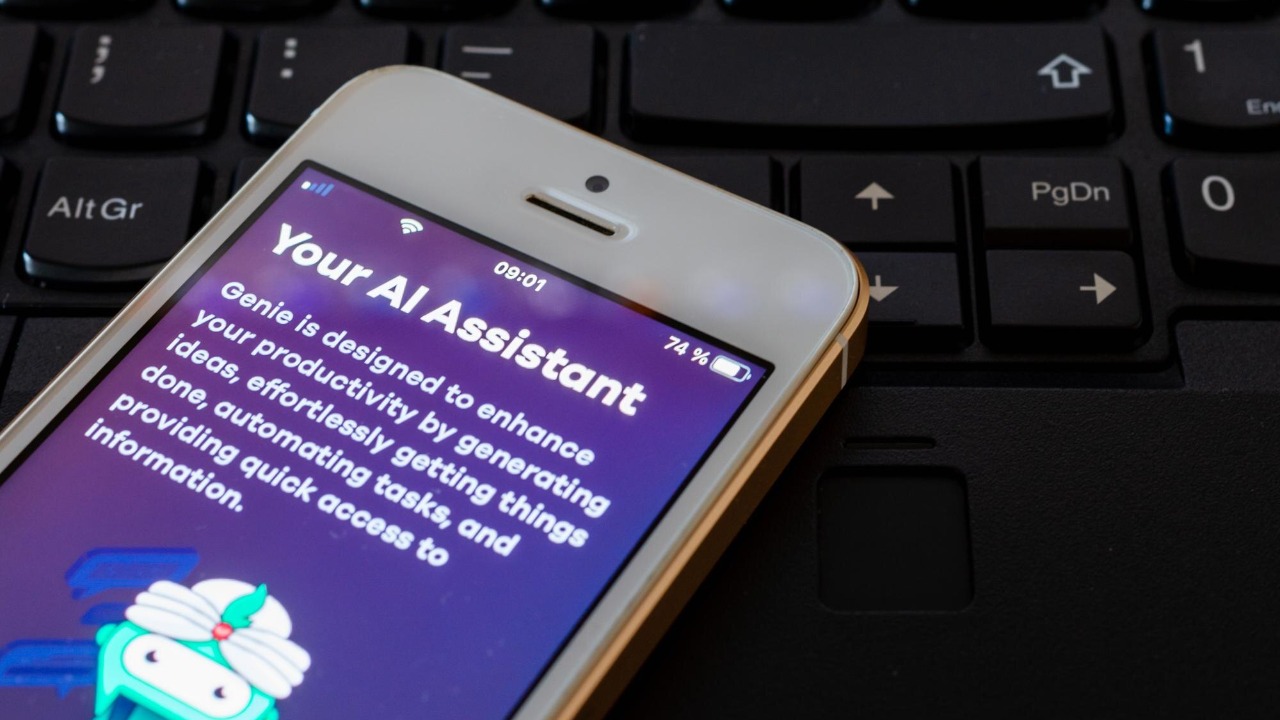
AI technology is becoming an integral part of our daily lives, often in ways we may not even realize. From the convenience of smart gadgets to the subtlety of personalized ads, AI is constantly influencing and reshaping our personal experiences. Here are nine ways AI is making its presence felt in your personal life.
1. Personalized Advertising

One of the most noticeable ways AI impacts our personal lives is through personalized advertising. Ever wondered why ads seem to know exactly what you want? AI algorithms analyze your online behavior, such as browsing history and search queries, to tailor ads that resonate with your preferences. This is not limited to websites; platforms like Facebook and Instagram use data-driven AI techniques to serve ads that align with your interests.
While this can enhance user experience by showing relevant products, it also raises privacy concerns. The extent to which your data is collected and analyzed is often unclear, making it crucial to understand and manage your privacy settings across different platforms.
2. Smart Home Devices

Smart home devices, such as Amazon Echo and Google Nest, have become staples in many households. These devices use AI to automate and control various aspects of home management, from adjusting the thermostat to playing your favorite music. The convenience offered by these devices is undeniable, but they also collect vast amounts of data to function effectively.
This data collection can lead to privacy issues if not properly managed. For instance, voice recordings are often stored and analyzed to improve AI performance. Ensuring that your smart devices are secure and understanding how your data is used can help mitigate these concerns.
3. Facial Recognition Technology

Facial recognition technology is becoming increasingly prevalent, with applications ranging from unlocking smartphones to identifying individuals in public spaces. AI-driven facial recognition systems analyze facial features to verify identity, offering convenience and security in various scenarios.
However, the widespread implementation of facial recognition technology raises significant privacy and ethical issues. Concerns about surveillance and data security are paramount, as this technology can potentially be used to track individuals without their consent. Understanding the implications and potential risks of facial recognition is critical as it becomes more integrated into daily life.
4. Social Media Algorithms

Social media platforms like Instagram, Twitter, and TikTok use AI algorithms to curate content that keeps users engaged. By analyzing your interactions, such as likes, shares, and comments, these platforms create a personalized feed designed to capture your attention.
While this personalization can enhance user experience, it also creates echo chambers where users are exposed only to viewpoints similar to their own. This can lead to misinformation and a skewed perception of reality. Being aware of how these algorithms work and diversifying your sources of information can help mitigate these effects.
5. Health and Fitness Trackers

Devices like Fitbit and Apple Watch utilize AI to monitor health metrics and track fitness goals. By analyzing data such as heart rate, activity levels, and sleep patterns, these devices provide insights to help users improve their health and well-being.
However, the collection of sensitive health data raises questions about privacy and data security. Understanding how your data is stored and shared by these devices is crucial in maintaining your privacy. Being informed about the potential risks associated with AI in health tracking can help you make more informed choices about using these technologies.
6. Voice Assistants

Voice assistants like Siri, Alexa, and Google Assistant have become indispensable tools for many. These AI-powered assistants can perform tasks ranging from setting reminders to controlling smart home devices, all through simple voice commands.
Despite their convenience, voice assistants listen for activation phrases, which means they are always “listening.” This continuous listening can lead to privacy concerns, as conversations may be inadvertently recorded and stored. Being aware of how to manage and secure the data collected by voice assistants is vital for protecting your privacy.
7. Online Shopping Recommendations

AI algorithms play a significant role in shaping your online shopping experience by recommending products based on your browsing and purchase history. Platforms like Amazon and eBay use AI to suggest items that align with your preferences, making shopping more efficient and personalized.
While these recommendations can be helpful, they also involve extensive data collection, which can feel intrusive. Understanding how these recommendations are generated and managing your data privacy settings can help you maintain control over your online shopping experience.
8. Location Tracking Services

Many apps and services use AI to provide location-based features, such as navigation, weather updates, and localized content. While these services offer convenience, they also track and store your location data, often without your explicit consent.
Location data can reveal a lot about your daily routines and habits, raising privacy concerns. Being mindful of the permissions granted to apps and regularly reviewing location sharing settings can help protect your personal information. It’s important to be cautious about the potential implications of widespread location tracking.
9. Predictive Text and Autocorrect

AI-driven predictive text and autocorrect features are designed to make typing more efficient by anticipating the words you intend to type. These features are prevalent in smartphones and email platforms, learning from your writing style to provide accurate suggestions.
While these tools can enhance productivity, they also collect data on your typing habits, which could be a privacy concern for some users. Understanding how these features work and adjusting settings to limit data collection can help maintain your privacy while still benefiting from the convenience of predictive text and autocorrect.